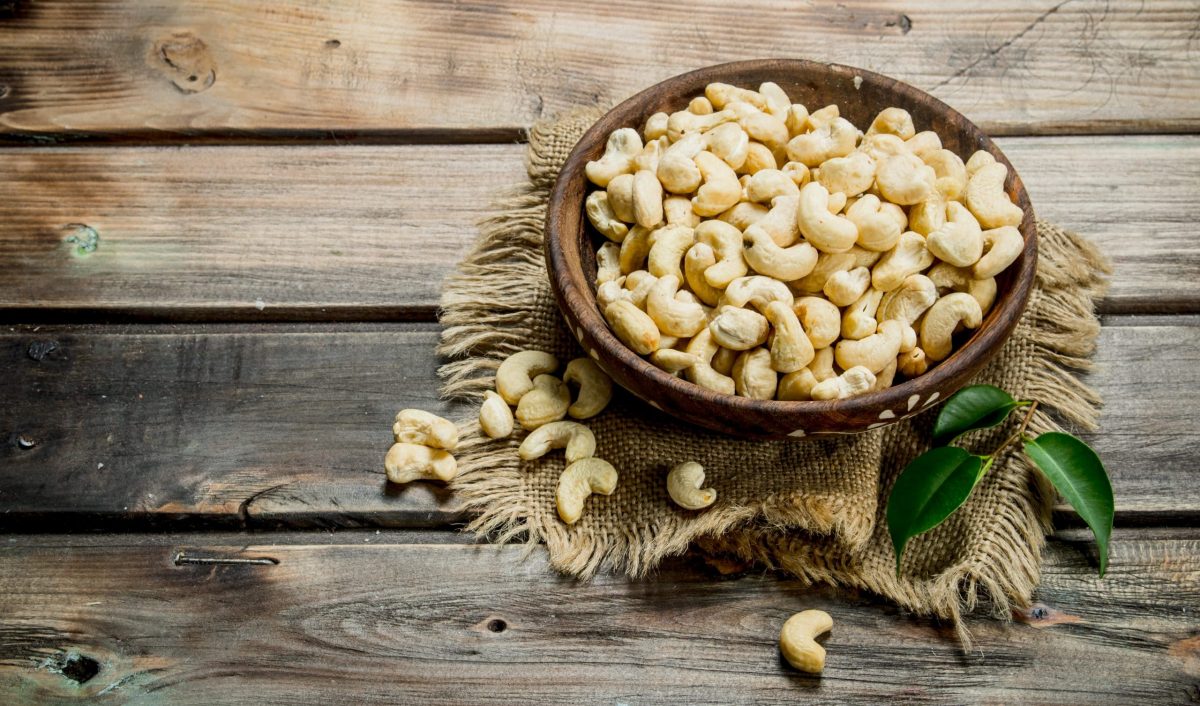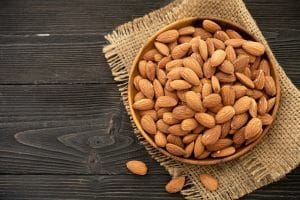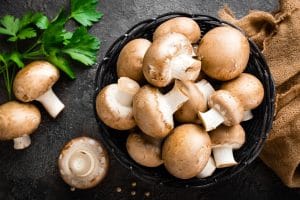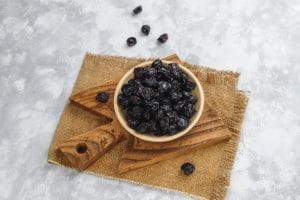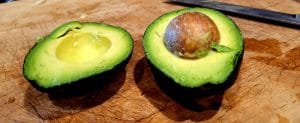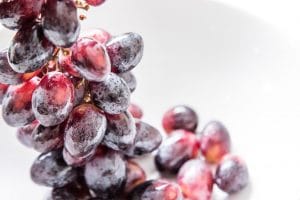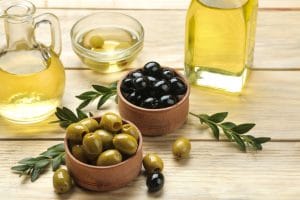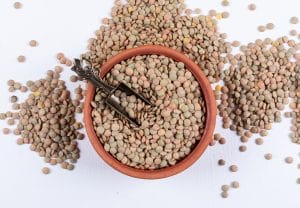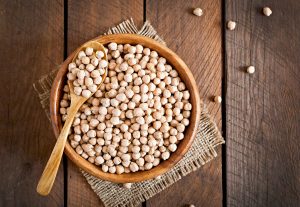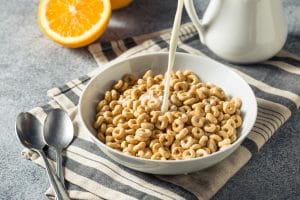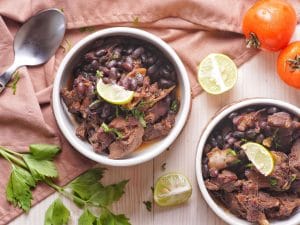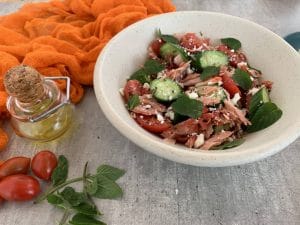Are Cashews Low FODMAP?
Important Note: When you buy through our links, we may earn a commission. As an Amazon Associate we earn from qualifying purchases. Content, pricing, offers and availability are subject to change at any time - more info.
Deliciously buttery and naturally sweet, the health benefits of cashew nuts are well documented. It is no wonder then that a food item that tastes great and has a myriad of health-promoting properties is so popular worldwide. Unfortunately, though, they are high on the FODMAP food list, and those suffering from digestive disturbances such as irritable bowel syndrome should best avoid them.
Seeds are all considered low FODMAP. Many nuts consumed in moderation also fall into this category. Unfortunately for all their other health benefits, cashew nuts are not part of this group and are considered high FODMAP, even small quantities. The main culprits are GOS and fructans.
Although cashews are popularly classified as nuts, they are seeds harvested from the base of a cashew apple, which is not a true fruit. This little factoid, perhaps somewhat interesting considering that seeds are generally regarded as low FODMAP, does not detract from the truth that cashews and pistachios are classified as very high FODMAP nuts.
- Why Are Cashews High FODMAP Nuts?
- The Health Benefits Of Cashews
- Cashews: Health Challenges
- Is There A Safe Way To Consume Cashews?
- So, Are Cashews Low FODMAP?
Why Are Cashews High FODMAP Nuts?
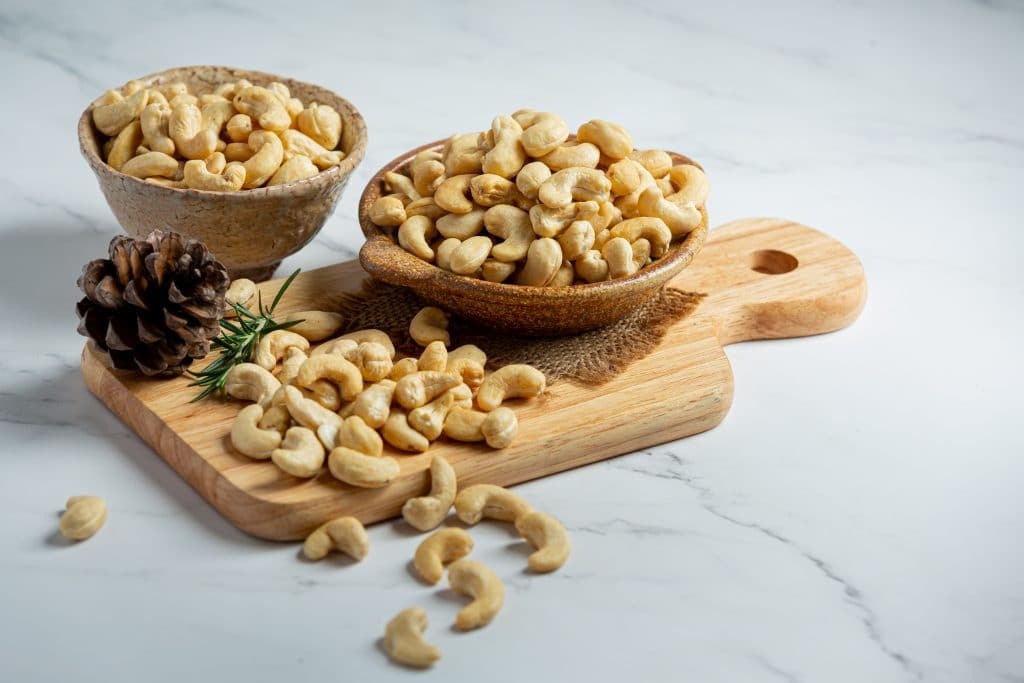
Monash University, a leading Australian university, conducted tests determining the FODMAP content of many foods, including cashews. This scientific literature has been published online and is freely available to the general public as a useful mobile app. The Monash FODMAP App is useful for quickly gauging the FODMAP rating for many foods.
Cashews contain a very high level of the oligos category, including oligosaccharides, disaccharides, monosaccharides, and polyols, all of which are a class of carbohydrates that promote a firestorm in the lower intestine for those struggling with IBS.
While most nuts are relatively safe to consume for most people with digestive disorders that do not suffer from nut allergies, it’s not good news for lovers of cashews. Even small quantities of this delicious nut variety are enough to trigger the negative effects of oligos carbs.
With this in mind, and despite the downside of consuming cashews, it is worth mentioning the health benefits of cashews as a potential guideline for choosing nut alternatives.
The Health Benefits Of Cashews
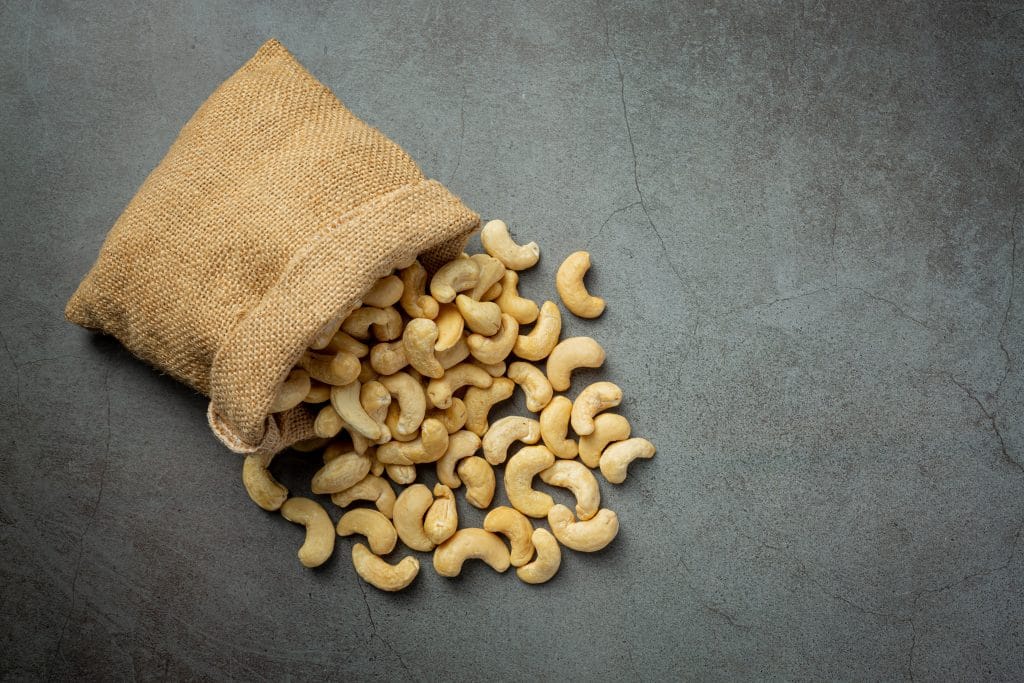
All nuts are vitamin-rich and a beneficial source of healthy fats, fiber, and antioxidants. Cashews also contain plant protein and are low in sugar. Lower in fiber than most other nuts, healthy fats help increase good cholesterol and lower bad cholesterol.
They are also proven to regulate blood pressure and are beneficial in weight management in small quantities. Used often as a meat substitute in many Asian dishes such as veggie stir-fries, it’s no wonder that Asians tend to outlive their western counterparts. Cashews also help boost your metabolism, which helps to speed up the burning of calories and hence lowers body fat.
Vitamins and minerals in cashews also include potassium and B6 vitamins. Copper and iron help improve your immune system and ward off illnesses such as flu.
Cashews: Health Challenges
Additional negative traits also compound the high FODMAP properties of cashews. These include:
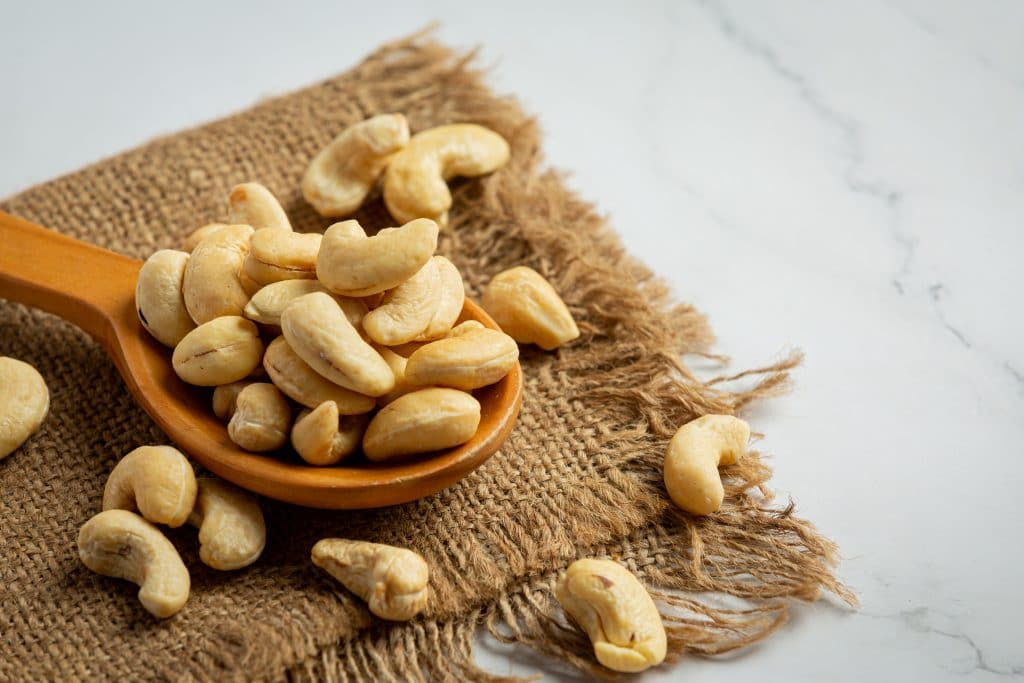
- Allergies – nut allergies can be caused by one or many types of nut allergies. Tree nuts can be grouped by protein types. Cashews and pistachios also happen to share the same proteins.
- Raw cashew toxicity – although roasted cashews contain fewer vitamins and antioxidants, they are also potentially safer than raw cashews due to the absence of urushiol, a toxin found in poison ivy. Raw cashews may also contain more harmful bacteria.
- High oxalate levels – oxalate is a compound found in some foods such as beans and cashews. It is also a waste product the human body releases via urine. Unusually high levels of oxalate can cause kidney stones and even long-term kidney damage.
Is There A Safe Way To Consume Cashews?
For those not FODMAP sensitive, the regular consumption of cashews is deemed safe and nutritionally beneficial when taken in small quantities. The optimal amount to reap the health benefits would range between 3 and 5 units per day. Even a half portion of 10 cashew nuts is considered high FODMAP. The key is, less is more.
Anyone suffering from high FODMAP sensitivity would be best advised to avoid cashews in their natural state entirely. However, some processes can make cashews more tolerable to a sensitive consumer.
1. Activated Cashews
Activated cashews are soaked in a saltwater solution, drained, and then dehydrated to remove some of the oligos content. The brine also activates the germination of the raw nuts, which causes biological changes in the seed.
This process produces nuts that are regarded as more digestible than regular cashews. It takes somewhere between 12 to 24 hours to complete this activation procedure, and many choose to do it themselves at home.
2. Cashew Butter
Cashew butter is similar in consistency to peanut butter. It is made from raw or roasted cashews and is very high in healthy unsaturated fats, protein, and B6 vitamins. A single tablespoon is considered low FODMAP and acceptable as part of a FODMAP restricted diet.
3. Low FODMAP Nut Alternatives
If nuts are your go-to comfort snack or you would like to reap the benefits associated with nut consumption, there are many alternatives available to you. Almost all other nuts typically sold in grocer stores or supermarkets are lower on the FODMAP scale than cashews, with the exception of pistachios.
Here’s a breakdown of nut alternatives and their relative FODMAP safe quantities:
- Peanuts – 32 nuts serving
- Almonds – 10 nuts half serving
- Macadamia – 20 nuts full serving
- Chestnuts – 25 nuts full serving
- Pecans – 8 halves full serving
- Walnuts – 10 halves full serving
These nuts all contain a range of similar or unique nutrients in varying quantities. As part of a low FODMAP and nutritious diet, they should not be consumed in quantities higher than recommended.
So, Are Cashews Low FODMAP?
Low FODMAP nuts are a fantastic source of good fats, vitamins, minerals, and fiber. Most nuts make nutrient-rich, low FODMAP snacks and help maintain a healthy, balanced diet. Unless you are FODMAP intolerant and therefore need to avoid regular cashews entirely, or have issues with insoluble fiber, try to eat a small handful of the safer nut varieties daily.
